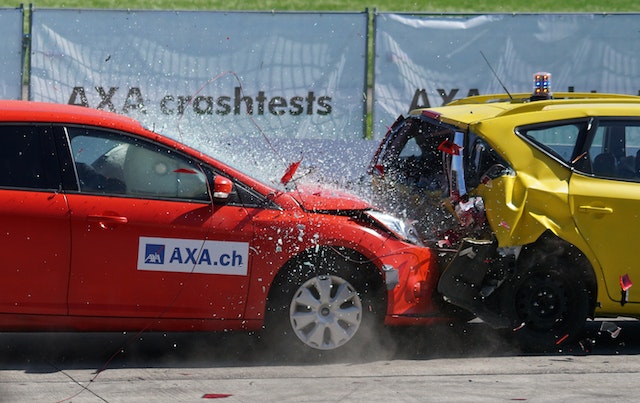Getting into a car accident is stressful enough, but what happens when the other car is parked and unoccupied? If you hit a parked car, you may be wondering if your insurance rates will go up as a result.
In this article, we’ll explore the potential consequences of hitting a parked car, discussing how insurance companies handle these situations and what factors can affect your rates.
Whether you’re a new driver or a seasoned one, read on to discover everything you need to know about whether your insurance will go up if you hit a parked car.
Table of Contents
Understanding Insurance Coverage
Before we delve into the question of whether your insurance rates will go up, let’s first discuss the basics of insurance coverage.
When you have an auto insurance policy, it typically includes several types of coverage, such as liability, collision, and comprehensive.
Liability coverage is designed to protect you financially if you cause damage to someone else’s property or injure someone in an accident.
Conversely, collision coverage assists in paying for the expenses of repairing or replacing your vehicle if it sustains damage in an accident, irrespective of fault.
Comprehensive coverage, meanwhile, protects your vehicle from non-collision-related incidents, such as theft or vandalism.
Reporting the Accident
After hitting a parked car, it’s crucial to take the necessary steps to ensure a smooth claims process. The first thing you should do is report the accident to your insurance company.
Even if you’re not sure whether you want to file a claim, it’s essential to inform your insurer about the incident.
Most insurance policies require you to report any accident, regardless of fault or severity, within a certain timeframe. Failure to report an accident promptly could result in complications when filing a claim later on.
When reporting the accident, provide your insurer with all the necessary details, such as the location, date, and time of the incident, as well as any information you have about the owner of the parked car.
It’s also helpful to take pictures of the damage caused to both vehicles, as well as the scene of the accident. This evidence can assist in determining fault and expediting the claims process.
Determining Fault
One of the key factors that can affect your insurance rates after hitting a parked car is the determination of fault. In accidents involving two moving vehicles, determining fault can be relatively straightforward. However, when it comes to hitting a parked car, the situation can be a bit more complex.
In most cases, if you hit a parked car, you will likely be considered at fault. The reasoning behind this is that drivers are responsible for maintaining control of their vehicles and avoiding collisions.
It’s essential to exercise caution and be mindful of your surroundings, even when parking or maneuvering in tight spaces.
However, there may be instances where fault is shared or assigned to the owner of the parked car, such as if their vehicle was illegally parked or obstructing traffic.
Impact on Insurance Rates
Now, let’s address the big question: Will your insurance rates go up if you hit a parked car? The short answer is that it depends on several factors, including your insurance policy, driving history, and the extent of the damage caused.
Insurance companies assess risk when determining premiums, and being involved in an accident, regardless of fault, can be seen as a risk factor.
If you have a history of multiple accidents or traffic violations, your insurance rates are more likely to increase.
On the other hand, if this is your first accident and you have a clean driving record, the impact on your rates may be minimal.
Insurance companies take into account your claims history and driving behavior when calculating premiums, so it’s difficult to predict the exact impact on your rates.
Factors That Can Affect Rate Increases
Although hitting a parked car can potentially cause an upsurge in your insurance premiums, particular factors can impact the extent of the rate hike or even prevent it from transpiring entirely. Here are some crucial factors to contemplate:
1. Your Insurance Policy and Coverage
The specific terms and conditions of your insurance policy play a significant role in determining whether your rates will increase.
Different insurers have different guidelines and policies regarding accidents and rate adjustments. Review your insurance policy or contact your insurance provider directly to understand how accidents affect your rates.
Several policies provide accident forgiveness, implying that your premiums will not escalate for your initial accident, whereas others may contain distinct clauses that shield you from rate hikes in particular circumstances.
2. Claiming vs. Paying Out-of-Pocket
When you hit a parked car, you have the option to either file an insurance claim or handle the expenses out-of-pocket.
If the damage is minimal and you can afford to pay for the repairs yourself, it might be worth considering paying out-of-pocket.
By avoiding an insurance claim, you can prevent the incident from being recorded in your claims history, which can help mitigate any potential rate increases.
However, keep in mind that if the damage is significant or you are unable to cover the expenses, filing a claim may be necessary.
3. Accident Forgiveness Programs
Accident forgiveness is a feature that protects you from rate increases after your first at-fault accident. If you have accident forgiveness included in your policy, hitting a parked car may not result in a rate hike.
However, it’s important to note that not all insurers provide this option, and there may be certain criteria or limitations associated with accident forgiveness programs. Check with your insurance provider to see if you have this coverage and how it applies in your situation.
4. Your Driving History
Your driving history is a significant factor that insurance companies consider when determining your rates. If you have a clean driving record with no prior accidents or traffic violations, the impact on your rates from hitting a parked car may be less severe.
Insurance companies typically offer lower premiums to drivers with a history of safe driving, as they are considered lower risk.
However, if you have a history of multiple accidents or violations, your rates are more likely to increase, regardless of whether the accident involved a parked car or another moving vehicle.
5. Accident Severity and Cost of Repairs
The severity of the accident and the cost of repairs can also influence the impact on your insurance rates. if the damage to the parked car is minor and can be easily repaired, the impact on your rates may be minimal.
However, if the accident results in significant damage and costly repairs, it’s more likely to lead to a rate increase.
Insurance companies take into account the amount they have to pay out in claims when assessing the risk associated with insuring you. Higher costs can result in higher premiums to offset potential future claims.
6. Safe Driver Discounts and Programs
Many insurance providers offer safe driver discounts and programs that reward drivers for maintaining a clean driving record.
These programs often include incentives for avoiding accidents and tickets. If you are enrolled in a safe driver program or have qualified for safe driver discounts, your rates may be more protected even if you hit a parked car.
These programs are designed to encourage and reward responsible driving behavior, and insurance companies are more likely to be lenient in such cases.
Remember, every insurance company and policy is different, so it’s crucial to review your specific terms and contact your insurance provider for accurate information regarding your rates after hitting a parked car.
Being proactive and maintaining a safe driving record can help you navigate these situations more confidently.
Conclusion
In conclusion, hitting a parked car can have implications on your insurance rates, but the outcome depends on multiple factors.
Your specific insurance policy, driving history, accident severity, and insurer’s guidelines all contribute to the final decision.
It’s crucial to be proactive, understand your coverage, and communicate with your insurance provider to gain clarity on how the incident will affect your rates.
Remember, accidents are learning experiences, and by driving responsibly and maintaining a clean driving record, you can minimize the impact on your insurance premiums.







